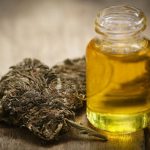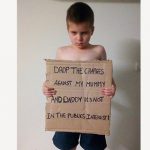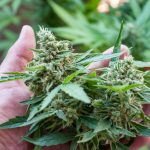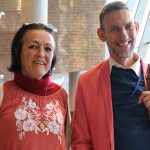Suli Deserves a Full Inquest: An Interview With Medicinal Cannabis Advocate Steve Peek
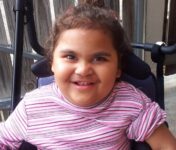
Steve Peek hesitated in treating his daughter, Suli, with medicinal cannabis, as the Queensland father-of-three was initially unsure about the illicit medicine.
However, after hearing that it might help ease his daughter’s constant seizures, he went on to source some cannabis oil.
Suli suffered from a drug-resistant form of epilepsy. And in 2015, when his then 7-year-old daughter was again having an adverse reaction to hospital-prescribed pharmaceutical medicines, he was left with no other choice, but to give cannabis treatment a go.
Peek couldn’t believe the difference the black market medicine had on his daughter’s condition, as straightway she experienced a 90 percent reduction in the seizures she was usually subjected to throughout the day.
But then, due to complications, Suli had to be taken back into hospital. And despite staff having turned a blind eye to cannabis oil in the past, on 21 October 2017, after having been denied the illicit substance and administered with pharmaceuticals, the 9-year-old girl passed away.
Warrants a full investigation
With the assistance of lawyer and PhD-qualified scientist Dr Teresa Nicoletti, Peek is now pushing for a full coronial inquest into Suli’s death, which would raise questions around a hospital denying a patient treatment that has not only been shown to be effective, but is also legal.
Indeed, so far, Suli’s case has been handled by three different coroners and the Peeks have been provided with four differing causes of deaths, each of which have either been rejected by the family, their lawyer or the coroner.
According to Peek, the coronial process would lay bare the “lies and conflicting evidence” around Suli’s death. As an example, he mentioned an imaging report obtained through freedom of information laws that shows obvious discrepancies with what was contained in the autopsy report.
Peek further points out that people with disability are often provided with inadequate health care. And he cites a UNSW study released earlier this year, which found that 53 percent of the deaths it reviewed in Queensland were considered to be potentially treatable or avoidable.
A right to life
As he was always up front with Queensland authorities about his use of an illicit substance in treating Suli, Peek maintains that his daughter’s use of medicinal cannabis became politicised.
And today, he wants a full inquest so that others in Suli’s situation can benefit going forward.
Peek is still trying to reconcile the fact that state health authorities continue to deny sick kids access to a life-saving medicine. And since his 15-year-old daughter, Khali, has now been diagnosed with drug-resistant epilepsy, the situation is once again personal.
Sydney Criminal Lawyers spoke to Mr Peek about the benefits that cannabis medicine can bring to sick children, the promises made that were subsequently broken, and the ridiculous disconnect that can see legal products bought at drastically cheaper prices if sourced on the black market.
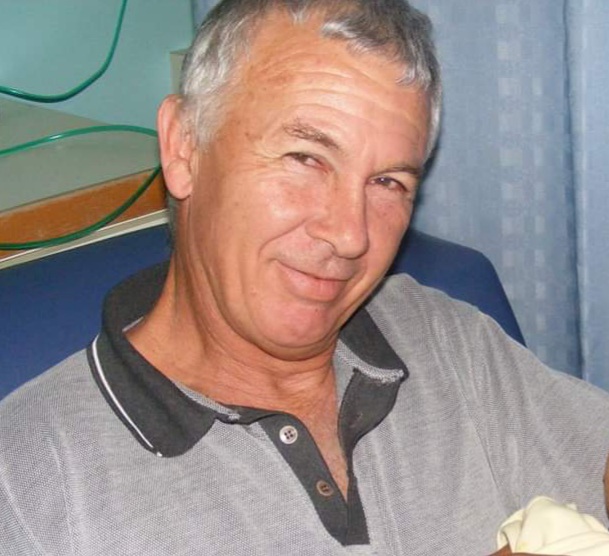
Firstly, in 2015, you started treating your then 7-year-old daughter Suli with medicinal cannabis, as she suffered from a drug-resistant form of epilepsy, which meant she had constant seizures throughout the day.
Where traditional western medicine hadn’t been effective, cannabis oil was. Steve, what sort of a difference would you say the illicit medicine made to your daughter’s wellbeing?
We first treated Suli on 15 May 2015. We notified the hospital on 18 May 2015. And the hospital notified the Child Protection Unit on 28 May 2015.
The Child Protection Unit advised the hospital to only notify the relevant clinicians and put it on her medical record. So, everybody knew about it right from the start.
Suli used to have anywhere from 100 to 200 tonic clonic seizures a day. She had suffered horrendous side effects from medications.
In May 2015, she developed bleeding stomach ulcers again for the second time from the pharmaceutical medication.
We contacted the hospital about it, and they said that we would have to wean her off it.
And we got her halfway through weaning her off it and she started seizuring badly. So, we rang up and asked what plan B was, but there was no plan B.
We had researched medicinal cannabis. And we had already sourced some, but we hadn’t used it. We were sceptical and a bit worried.
But, when her seizures got out of control and they said there was no plan B, we decided to use the medicinal cannabis.
It actually scared us at first, because within half an hour her eyes were suddenly wide open and she became alert. It was such an effect.
From then on, her quality of life was amazing. Her seizures reduced. She was meeting her goals at the special school.
We were able to take her outside in the sunlight, when, before that, she had to be inside in air conditioning, because she couldn’t handle the heat, as it would trigger seizures.
One thing people don’t realise is that they’d been monitoring Suli, because she had a brain tumour.
It was a small one that had grown at the back of her brain over a number of years. They thought it was a benign glioma, and with the position of it, it was too risky for a biopsy.
Eight months after she’d been on medicinal cannabis that brain tumour had disappeared. Now that is the benefit she gained.
Unfortunately, the brain tumour wasn’t the cause of her problems, it was just one of them. But that was the sort of benefits she gained from medicinal cannabis.
And I never witnessed any adverse side effects – not one.
In January 2017, Queensland premier Annastacia Palaszczuk offered to help you obtain legal cannabis oil for Suli. However, this never actually occurred. Can you explain what happened here?
The meeting with Palaszczuk came about as I had been on Steve Austin’s ABC Radio program twice. We’d spoken about medicinal cannabis and Suli, as I was advocating for an amnesty.
I was going in for an interview, and before that he was interviewing the premier about the Queensland medicinal cannabis legislation.
The premier said she’d been meeting with families and hearing their stories. So, Austin asked why she hadn’t met with me, as I’d been trying to get a meeting with her. And she said she would meet with me.
I went to the meeting with Carol Ireland, the CEO of Epilepsy Action Australia. The Queensland chief health officer Dr Janet Young and two of Palaszczuk’s policy advisers also attended the meeting.
I was expecting to advocate for the amnesty. But, straight away, the premier offered access to government-funded legal medicinal cannabis product for Suli for the rest of her life.
And the important part is, it was access for Suli, and all children like her. Now, there’s in excess of 3,000 children under 14 years of age in Queensland, who have drug resistant epilepsy. And they could well have benefited from the offer.
We left that meeting thinking we had struck gold. We were elated by what had been offered. But, straight away, when Ms Ireland wrote to Dr Young detailing what had been offered and requesting confirmation in writing, it was never given.
The premier never responded to any of my communications after that. She wouldn’t even acknowledge that the meeting took place.
I had a phone conversation with Dr Young. I’ve got the transcript. And she agreed with everything that was offered at the meeting.
But, later on, she said that what was offered was access to Epidiolex – an approved cannabis medicine – through the compassionate access scheme at Lady Cilento Children’s Hospital, which is a blatant lie.
Now, I’d known Lucy Haslam for a while. And she put me onto lawyer Dr Teresa Nicoletti, who came on board in June of that year.
She wrote numerous letters trying to get a prescription for Suli, which were deliberately blocked by Queensland Health and by the Children’s Hospital.
One response we got from the hospital was that all clinicians in Queensland had decided it was in Suli’s best interest not to prescribe an alternative medicinal cannabis product.
Suli began having to attend hospital in 2016, and at first, hospital staff turned a blind eye to the use of the illicit cannabis oil. But, that changed.
Then, in October 2017, your daughter was readmitted to hospital. And she was given paracetamol and half an hour later she passed away. In your understanding, what happened?
Once we started giving her medicinal cannabis for a year, Suli no longer had to go to hospital for epileptic seizures.
But, in May 2016, she caught a respiratory virus and she had to be taken to hospital, as she had a spike in seizures.
They put her on pharmaceutical medication that affected her ability to swallow. Then she aspirated on her saliva and developed pneumonia. So, we ended up back in hospital again.
They started giving her rescue medications and she suffered respiratory failure from the side effects.
They wouldn’t let me give her the cannabis oil when I first went in there. She was on a respirator and general anaesthetic.
They’d used nearly every medication, and she was still seizuring every four to five minutes.
I told the head clinician that I was going to give Suli medicinal cannabis and they could either work with me or against me.
I said if they called the police we were all going to be losers, and my daughter would be the biggest loser. They agreed that I could give it to her, and after the third dose her seizures stopped.
Suli was connected to a video EEG. I obtained a copy of it under freedom of information laws. And the staff allowing me to give her the medicinal cannabis medicines is all recorded on the EEG.
I had a meeting with her specialist team, and I told them that I’d been giving her the cannabis medicine in the hospital and I wasn’t going to stop.
So, they agreed that what they would do was put us in a room on our own, and as soon as possible, they’d get her discharged from the hospital and send her home. And about three days later, we were discharged.
Everything was good. But she’d suffered some damage in her throat, and we think she got an infection. So, three weeks later, we had to go back to the hospital.
They made three very serious mistakes in her treatment, which are documented. And it caused a spike in seizures and she had to be intubated, due to the side effects of the drugs.
Four days later, they extubated her and her seizures started again. They wanted to give her those drugs again, and I said no. I told them the drugs do not play a role in Suli’s welfare anymore. I’d drawn a line in the sand.
I sat up all that Sunday night stopping them from giving her those drugs. And early Monday morning, we had a meeting with the specialist team, and I told them that they couldn’t give her those drugs again.
The head of the intensive care unit (ICU) said that they would be reluctant to admit my daughter into the ICU at that point.
Suli was then discharged from the hospital. We brought her home and we treated her with cannabis. She was very ill for about two weeks.
But things came good, and were good until October 2017. At that point, Suli had been on the ketogenic diet for five and a half years. It’s a specialised diet made from a powder.
But, because of the mistakes that had been made while she was intubated, she had to be taken off the ketogenic diet.
It caused her so many stomach issues, because she couldn’t tolerate the formula they were giving her.
We then took her back into the hospital and said that we weren’t leaving until her stomach issues were sorted out. So, they put us in a room of our own, and left us to our own means.
We were still giving Suli the cannabis oil. But, on the Thursday night, they gave her a medication that they’d tried with her before that caused terrible side effects.
Two of the serious side effects of that drug are palpitations of the heart and breathing issues.
Now, that drug was not approved for use on children under 16 years of age. They administered it intravenously, and about 40 hours later she suffered a cardiac arrest.
She was actually sitting up holding my wife’s hands as they were getting ready to take her down for a chest x-ray. This was half an hour after they’d given her some Panadol, and she suffered a cardiac arrest.
We found out after autopsy that she developed severe pneumonia, which wasn’t treated.
We’ve had four causes of death. The first cause issued by the hospital was heart failure. And it was rejected by the coroner.
The next cause of death was Suli died by cardiac arrest due to pneumonia, which was caused by Rett syndrome, which we rejected. We said Rett syndrome can’t be a cause of death.
We are not disputing that she died from a cardiac arrest. We know she did. What we’re disputing is what caused that cardiac arrest.
Dr Nicoletti wrote a letter rejecting the cause of death and the pathologist then contacted her and offered to change the cause of death to pneumonia caused by Rett syndrome.
But how can you offer to change a cause of death? So, we rejected that.
They then came back with Rett syndrome being the all-encompassing cause of death, which we rejected.
The coroner put Suli’s case before the legal counsel for review. I found out that the counsel was at the time working for the Health Ombudsman, who had rejected my complaint that the hospital didn’t treat her death as reportable.
So, automatically, that was found to be a conflict of interest. The coroner agreed with this.
So, Suli’s death was then sent to the deputy state coroner, who after about 18 months decided not to have an inquest.
Dr Nicoletti immediately appealed this decision, which was rejected. And just over four months ago, we sent a letter of complaint to the head state coroner, who is now investigating Suli’s death.
Any death in a health care facility which is not expected from the treatment being received is a reportable death.
When Suli died, the social worker said to us that we would have to take her body to a funeral home as quickly as possible, because they didn’t have a mortuary in the hospital.
I told Dr Nicoletti this and she said there was something wrong, so I needed to demand a toxicology test on her blood.
When the paediatrician came in, I asked for the toxicology test. An hour later, they came back and said they’d spoken to the coroner and they wanted to do an autopsy because I’d requested the test.
Then they said they’d made a mistake and there was a mortuary in the hospital. They said her body would then be taken there and the coroner’s office would be in contact regarding the procedure for an autopsy.
But, by two o’clock on the Monday, I still hadn’t received a call from the coroner’s office. So, I rang them to ask what was going on.
They said there was something wrong, as my daughter’s death hadn’t been reported. Then an hour later, the office rang back and said they’d been in contact with the hospital and the police were going to go to collect her body.
When the police went around there, it must have scared the hospital, because at 8 pm on a Monday night, I got a phone call from the police. They were requesting that I go to Morningside Police Station for an interview.
I went to Morningside station, here in Brisbane, and they asked about the medication my daughter was on. I told them she was on no medication, besides medicinal cannabis.
What had happened was somebody from the hospital had rung up the Child Protection Unit and made a formal complaint about my having been giving illegal cannabis products to Suli in the hospital.
Part of the police questioning was whether the cannabis medicine was legal. I told them that it was sourced illegally.
They asked if it contained THC. I said it did, but they should also understand that under Queensland legislation, any part of the cannabis plant – living or dead, whole or in part, including THC and CBD –can be legally prescribed.
They asked why I didn’t get a legal prescription. I told them that I didn’t know why, and if they found out, could they let me know.
They then asked who knew that I was giving illegal cannabis products to my daughter. And they asked me to name these people. So, I started with the premier and went all the way down to the hospital.
They also asked whether I had given illegal cannabis products to my daughter in the hospital and did the staff know. I told them that was the case.
Then I told them about how in the ICU, I was allowed to give it to her, and it was on her record. The officers then said it looked like the hospital would be investigated, because they might have broken the law as well.
I went home and half an hour later the police called again, saying they were outside the house and could I come out and talk to them.
I went out and they asked for a sample of what I was giving my daughter. I told them I’d gotten rid of it. They asked if they could search the house, and I let them, even though they had no warrant.
The detectives were very good. I don’t think they wanted to be there. They asked where I would regularly keep the medicine. I said in the fridge. They asked that I open it. I did and they had a look inside.
They thanked me and were about to leave. I said if they wanted to know what I was giving her that I had a certificate of analysis, which I could give them a copy of. I told them that I had taken a sample to the hospital and I had it analysed there.
On the following day, the police rang again, they asked me to come in, and told me that I needed a lawyer present.
I arranged for Dr Nicoletti to be on speaker phone. She explained the legislation to them and told them how the hospital refused to prescribe legal product.
I asked if they were going to charge me. They said it wasn’t up to them. And I told them I was more than happy to be charged, as the matter really needed to go before a court of law.
I told them that I’d be pleading that I had committed no crime, as I was justified in breaking the law under the defence of medical necessity.
There are provisions for the defence of necessity in the Queensland Criminal Code. And the hospital broke the Code by refusing to allow me to give Suli medicinal cannabis, as they failed to provide the necessities of life.
A person who goes into hospital and is gaining a medical benefit from an illegal cannabis product, should not be stopped from taking it.
What should happen is that illegal product should be replaced with an alternative legal product while they’re in the hospital. It should not be stopped, because it causes harm.
So much harm was caused to Suli by the hospital for refusing to allow her to have the cannabis in the hospital.
It caused her irreversible harm. That should never occur. They can replace it with a legal product. And that’s what should happen. That’s what needs to be fixed.
And lastly, you point out that the circumstances of Suli’s case are not isolated. And the same sort of factors are being played out today.
Indeed, your 15-year-old daughter, Khali, was diagnosed with epilepsy early last year. However, health authorities are now refusing to prescribe cannabis medicine for her.
Steve, what would you like to see happen from here?
We would like an inquest into the actions of the hospital and Queensland Health in blocking access to Suli.
Cannabis medicine remains too expensive and too hard to get.
Any specialist in the hospital can prescribe any of the cannabis products. The hospital can source that product, fund it and dispense it through its pharmacy.
But they refuse. Why do they refuse?
In Queensland, there is Epidiolex, which Suli was offered three times. But we had to refuse that, because the conditions were too dangerous.
They wanted a one month washout period. Dr Nicoletti said there is no clinical, medical or legal reason for that washout period, because it’s a compassionate access scheme, not a trial.
Now, we’re heading down the same road again with our 15-year-old daughter, Khali. She saw what happened to Suli. She doesn’t want to use those drugs.
We’re now treating her with an illicit cannabis product. And she’s getting a brilliant result from it.
The hospital has refused in writing to prescribe her a cannabis product. They want to prescribe pharmaceutical products.
One of these drugs has side effects of anxiety and depression. And Khali has suffered mental health issues since the loss of her sister.
So, there are medicinal cannabis products that they could be prescribing, but are refusing to?
That’s right. That is where it is at. They won’t prescribe medicinal cannabis. T
hey want her to try pharmaceutical medicines first. But there is no regulation for this. Cannabis can be a first line of treatment.
I’ve heard that the legal cannabis product the hospital can prescribe is $60,000 a year. But I can get that product through a cannabis clinic for $45,000 a year. A 25 ml bottle is $295 and it would only last her two and a half days.
And you can access this on the black market for much cheaper?
We’re accessing a legally produced medicine that’s made in Europe under the strictest regulations that we’re sourcing illegally. It’s costing us about $1,000 a year. You can buy it online.


